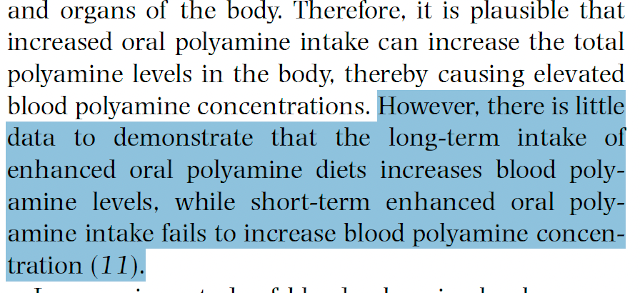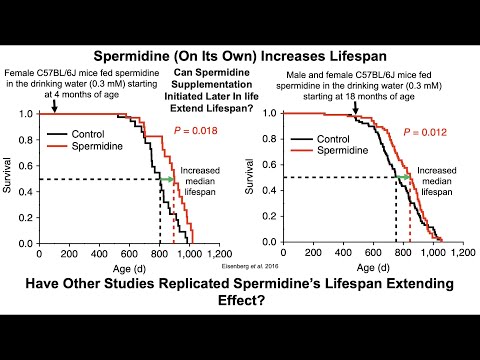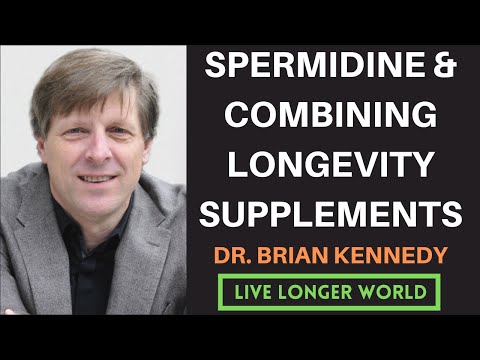I’m not saying that 12mg/day does or does not have any effect on lifespan - I’m just skeptical given the amount of data so far. Its easy to get too excited about new compounds - and with the many disappointments in the aging field over the past decade or two, I’ve learned to control my enthusiasm
The rat studies (a larger animal) showed no lifespan increase. And there seem to questions around how bioavailable the spermidine is, and how well it gets into the bloodstream.
In the following paper they state:

It seems to take a very long time to be taken up into tissues - see the studies and they talk about testing 1 year after people have been taking high doses of Natto. They wouldn’t wait a year to test if they didn’t have to, is my personal perspective. Running a year long study is expensive, and if they could have gotten by with a 6 month study I think they would have. Most studies are far shorter.
I’m just being cautious with my expectations. The results and uptake by tissue type seem to vary a lot… I would like to see more data, more replication by 3rd party labs before I get more confident about spermidine. Your opinion may vary.
I still like it for its apparent potential in helping in healthspan, but I’ll take a wait and see attitude towards the lifespan improvement. I also admit I haven’t read all the studies - so my opinion may change as I slowly digest the research papers.
Also - I reached out to Stephen Hofer and Frank Madeo, some of the researchers focused on spermidine, about the the issue of spermidine entering the blood stream / bioavailability, and they had this to say:
In 2016 my colleagues showed that long-term feeding did increase spermidine levels in cardiac tissue and systemically, but rather subtly. (Cardioprotection and lifespan extension by the natural polyamine spermidine | Nature Medicine).
Also, this year we analyzed labelled spermidine fed orally and how it is taken up by tissues. The kinetics for brain tissue f.i. are very slow (Dietary spermidine improves cognitive function - PubMed), in other tissues dietary spermidine seems to be taken up and incorporated into the tissue spermidine pool much faster (unpublished, personal communication).
One long-term study using spermidine-enriched Natto (japanese specialty food) found elevated spermine levels after 1 year in human blood. They used the highest amount of spermidine supplementation in humans that I know of. i think this also shows that the polyamine pool is highly flexible and that blood levels are poor markers. Increased levels of spermidine can take different routes (conversion to spermine is only one).
In sum, I think it’s clear from the published data that spermidine is bioavailable to mammals, but certain considerations make it difficult to detect its uptake.
Best wishes,
Sebastian
Frank Madeo, also one of the lead spermidine researchers at University of Graz, also responded:
Dear Brian,
yes, dietary spermidine enters the blood stream, as we published recently:
https://www.cell.com/cell-reports/pdfExtended/S2211-1247(21)00299-0
Hope this helps, Frank


